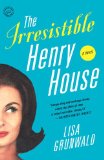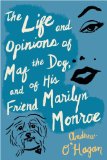Summary | Excerpt | Reading Guide | Reviews | Beyond the book | Read-Alikes | Genres & Themes | Author Bio

A Novel
by Lisa GrunwaldHenny-Penny, Heinzy, and Henrykins are but a few of the many names adoringly cooed into the sweet, newborn ears of little Henry House. Unbeknownst to this tiny baby bundle so recently transferred from the local orphanage, Henry finds himself at the heart of the Wilton College home economics program of 1946.
From the outset, Henry's cries fill the pages; urgent, needy infant wails that even the reader must ignore due to instructor Martha Gaines' stiff child-rearing techniques. As official college property, Henry falls under the starched, competent care of Martha and her regimented "practice baby" curriculum. Having successfully moved a multitude of infants and students through Wilton's no-nonsense practice program, Ms. Gaines considers herself the maternal scale on which future mothers will weigh their worth.
But Henry House is different, and Martha's reiterated rule "not to indulge in undue physical affection" thankfully begins to bend under little Henry's practiced, honeyed gaze. As a regular rotation of six smitten young students interchange week after week and year after year, Henry's formative years serve to establish a vast repertoire of charms that will both serve and plague him for the rest of his life.
Henry is a player, albeit a sympathetic one, and his universal appeal advances along with his age. Yet while Henry manages to captivate everyone he meets, his allure comes with a contrived intention that may leave readers cautious or reluctant rather than unwaveringly loyal. "If he had stopped to ask himself why he had such faith in his attractiveness, he might have traced it back to his days in the practice house; to his primal skill in discerning women's longings and fitting himself, puzzle-piece-like, into the rounded clutch of those needs. But he hadn't yet stopped to examine it. He merely enjoyed his power."
Lisa Grunwald takes Henry's extraordinary beginnings and digs deep to carefully construct the strained cords of his early attachments. Carefully working the tension of Henry's liaisons, Grunwald expertly leaves the reader in possession of the damaged emotional compass Henry will use to plot the colorful course of his adult life. Regardless, as the irresistible Henry moves into adulthood, I was left wondering whether or not he is just charming and irresistible enough to excuse his lack of tact and bad behavior. If you're not easily wooed, you might find yourself questioning if Henry is man enough for you.
At times Henry's lack of attachment is a bit overworked, and Grunwald takes a big risk in his curt interactions with Martha; House pivots on this primary relationship. While Martha opts for obsessive hovering over motherly love, I still found her worthy of more than Henry's insouciance and indifference. Yet Grunwald's carefully crafted gamble pays off as she repeatedly plays the nurture card, and I found myself siding with Henry time and time again.
With several turbulent decades to cover, The Irresistible Henry House is daring in its attempt to move from the stern constructs of the 1940's through the free-flowing love of the 60's, and in this Grunwald succeeds. As ideologies and social tempos change she manages to segue through the times without overdosing on psychedelics or cultural kitsch. Her characters are full of flavor, and her writing nurtures this unusual tale of outrageous origin, leaving you happily turning pages to see how the story resolves. Surprising in scope and content, The Irresistible Henry House is an extraordinary affair of the heart.
![]() This review was originally published in The BookBrowse Review in March 2010, and has been updated for the
September 2011 edition.
Click here to go to this issue.
This review was originally published in The BookBrowse Review in March 2010, and has been updated for the
September 2011 edition.
Click here to go to this issue.

If you liked The Irresistible Henry House, try these:

The Life and Opinions of Maf the Dog, and of His Friend Marilyn Monroe
by Andrew O'Hagan
Published 2011
In November 1960, Frank Sinatra gave Marilyn Monroe a dog. His name was Mafia Honey, or Maf for short. With style, brilliance, and panache, Andrew O’Hagan has drawn a one-of-a-kind portrait of the woman behind the icon, and the dog behind the woman.

by J.R. Moehringer
Published 2006
In the grand tradition of landmark memoirs - a classic American story of self-invention and escape, of the fierce love between a single mother and an only son, it's also a moving portrait of one boy's struggle to become a man, and an unforgettable depiction of how men remain, at heart, lost boys.
Your guide toexceptional books
BookBrowse seeks out and recommends the best in contemporary fiction and nonfiction—books that not only engage and entertain but also deepen our understanding of ourselves and the world around us.